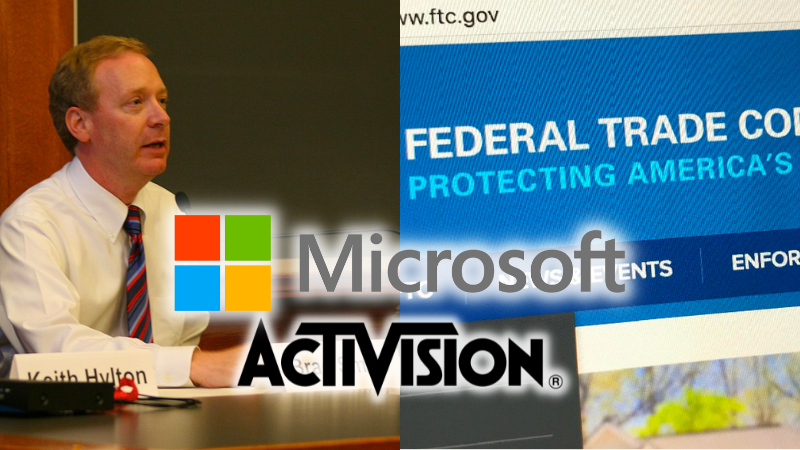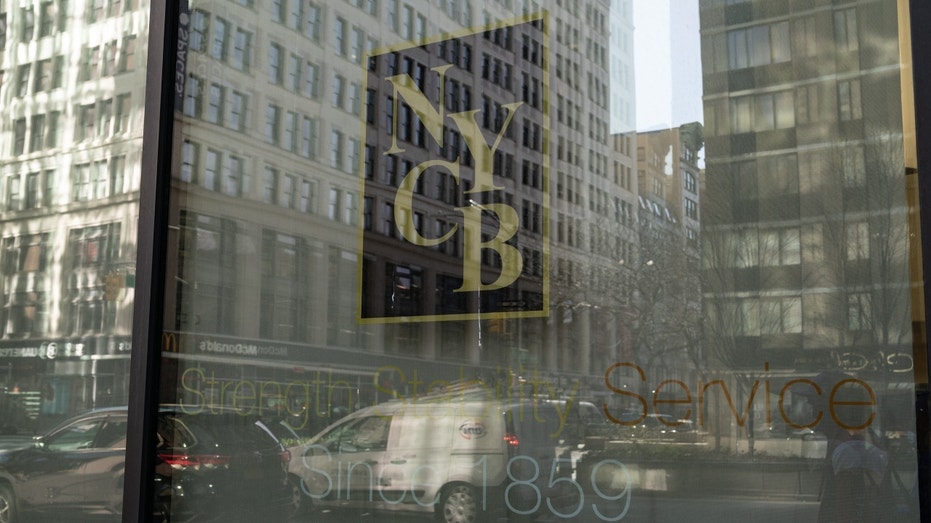Activision Blizzard Acquisition: FTC Launches Appeal

Table of Contents
The FTC's Concerns Regarding the Activision Blizzard Acquisition
The FTC's opposition to the Microsoft-Activision Blizzard acquisition stems from concerns about potential anti-competitive practices and the stifling of competition within the gaming market. The regulatory body argues that the merger would give Microsoft an unfair advantage, harming consumers in the long run.
-
Concerns about Microsoft's market dominance: The FTC highlights Microsoft's already substantial presence in the gaming console market (with Xbox) and its growing influence in cloud gaming. The acquisition of Activision Blizzard, a major player with titles like Call of Duty, World of Warcraft, and Candy Crush, would significantly strengthen Microsoft's position, potentially creating a monopoly.
-
Potential for increased prices and reduced consumer choice: The FTC worries that reduced competition could lead to higher prices for games, fewer choices for consumers, and potentially less innovation in the gaming industry. A lack of competition can stifle the development of new and exciting games.
-
The impact on competitors like Sony and other game developers: The FTC's arguments also center on the negative impact the merger could have on competitors like Sony, which relies heavily on Call of Duty's presence on PlayStation consoles. Smaller game developers could also be negatively affected by Microsoft's increased market power.
-
FTC's focus on preserving competition and innovation: The core of the FTC's argument rests on its mandate to protect competition and promote innovation within the market. They believe that allowing the merger to proceed unchecked would harm the competitive landscape and ultimately hurt consumers.
Further details from the FTC's complaint highlight specific concerns about Microsoft's potential to leverage its control over Activision Blizzard's popular titles, potentially making them exclusive to Xbox consoles or its Game Pass subscription service. This could significantly disadvantage other console manufacturers and gaming platforms.
Microsoft's Response to the FTC's Appeal
Microsoft vehemently refutes the FTC's claims, arguing that the acquisition will actually benefit consumers by expanding access to games through Game Pass and fostering innovation.
-
Microsoft's commitment to keeping Call of Duty on other platforms: A key part of Microsoft's defense is its repeated pledge to keep Call of Duty available on PlayStation consoles and other platforms. They claim this demonstrates their commitment to maintaining competition and consumer choice.
-
Arguments against the FTC's assessment of market dominance: Microsoft argues that the FTC's assessment of market dominance is flawed and doesn't accurately reflect the competitive dynamics of the gaming industry. They point to the presence of other major players like Sony, Nintendo, and numerous PC game developers.
-
Potential economic benefits highlighted by Microsoft: Microsoft emphasizes the potential economic benefits of the acquisition, including job creation and investment in game development. They argue that the merger will lead to greater innovation and a more vibrant gaming ecosystem.
-
Microsoft's position on preserving consumer choice and competition: Microsoft consistently maintains that the acquisition will not harm competition and will actually enhance consumer choice by offering more games through Game Pass at competitive prices.
Further details from Microsoft’s public statements and press releases emphasize their proactive approach to addressing the FTC's concerns. They have offered concessions and contractual agreements to try and alleviate concerns about exclusivity and market dominance.
The Role of Call of Duty in the Legal Battle
The immensely popular Call of Duty franchise is at the heart of the legal battle. Its massive player base and market share make it a crucial element in the FTC’s and Microsoft’s arguments.
-
Call of Duty's immense popularity and market share: Call of Duty's popularity and consistent top rankings in sales charts make it a highly valuable asset. The potential for its exclusivity to a single platform is a significant concern.
-
The FTC's concern regarding potential exclusivity: The FTC is deeply concerned that Microsoft could make Call of Duty exclusive to Xbox, giving it a significant competitive advantage over Sony and other platforms.
-
Microsoft's promises regarding Call of Duty's continued multi-platform availability: Microsoft has repeatedly pledged to continue making Call of Duty available on PlayStation, attempting to counter the FTC's concerns. However, the FTC remains skeptical.
-
Analysis of the potential impact on rival gaming platforms: The future of Call of Duty's availability on competing platforms will have a significant impact on the competitive balance within the gaming industry. Losing access to such a popular title could severely harm rivals like Sony.
The future of Call of Duty’s cross-platform availability directly impacts the outcome of this legal battle and shapes the potential future of game exclusivity.
Potential Outcomes and Implications of the Appeal
The appeal's outcome holds significant implications for the future of the gaming industry. Several scenarios are possible:
-
Scenario: FTC wins the appeal – potential consequences for the acquisition: If the FTC wins, the acquisition could be blocked entirely, or Microsoft might be forced to divest certain Activision Blizzard assets to address the FTC’s concerns.
-
Scenario: Microsoft wins the appeal – potential impact on the gaming market: A victory for Microsoft would likely pave the way for the acquisition to proceed, potentially leading to significant changes in the gaming market landscape.
-
Impact on future mergers and acquisitions in the gaming industry: The outcome will set a precedent for future mergers and acquisitions within the gaming industry, influencing how regulatory bodies approach similar deals in the years to come.
-
The long-term implications for game pricing, console exclusivity, and consumer choice: The long-term impact on game pricing, console exclusivity, and consumer choice remains to be seen but will depend heavily on the appeal's final decision. Expert opinions vary widely on the potential positive and negative consequences.
Industry analysts and legal experts offer differing perspectives on the likely outcome and its broader ramifications, adding another layer of complexity to the ongoing debate.
Conclusion
The FTC's appeal against the Microsoft-Activision Blizzard acquisition is a pivotal moment for the gaming industry. The FTC raises critical concerns about anti-competitive practices and potential harm to consumers, while Microsoft argues the merger will benefit both gamers and the industry as a whole. The role of Call of Duty in this debate highlights the high stakes involved. The outcome will significantly shape the future of the Activision Blizzard acquisition and the gaming landscape. Stay informed about the ongoing legal battle surrounding the Activision Blizzard acquisition. Follow [link to relevant news source/blog] for updates and analysis of this pivotal moment in the gaming industry. The outcome of this appeal will significantly shape the future of the Activision Blizzard acquisition and the gaming landscape as a whole.

Featured Posts
-
 Kangaroo Numbers Fuel South Australian Drought Crisis Farmers Struggle
May 29, 2025
Kangaroo Numbers Fuel South Australian Drought Crisis Farmers Struggle
May 29, 2025 -
 Extreme Oranjegekte E4000 Voor Kaartjes Naar Liverpool
May 29, 2025
Extreme Oranjegekte E4000 Voor Kaartjes Naar Liverpool
May 29, 2025 -
 Prinsenstraat Venlo Onderzoek Na Schietincident
May 29, 2025
Prinsenstraat Venlo Onderzoek Na Schietincident
May 29, 2025 -
 Hujan Di Jawa Timur Perkiraan Cuaca 6 Mei 2024
May 29, 2025
Hujan Di Jawa Timur Perkiraan Cuaca 6 Mei 2024
May 29, 2025 -
 New York Rangers The Dominoes Begin To Fall
May 29, 2025
New York Rangers The Dominoes Begin To Fall
May 29, 2025
